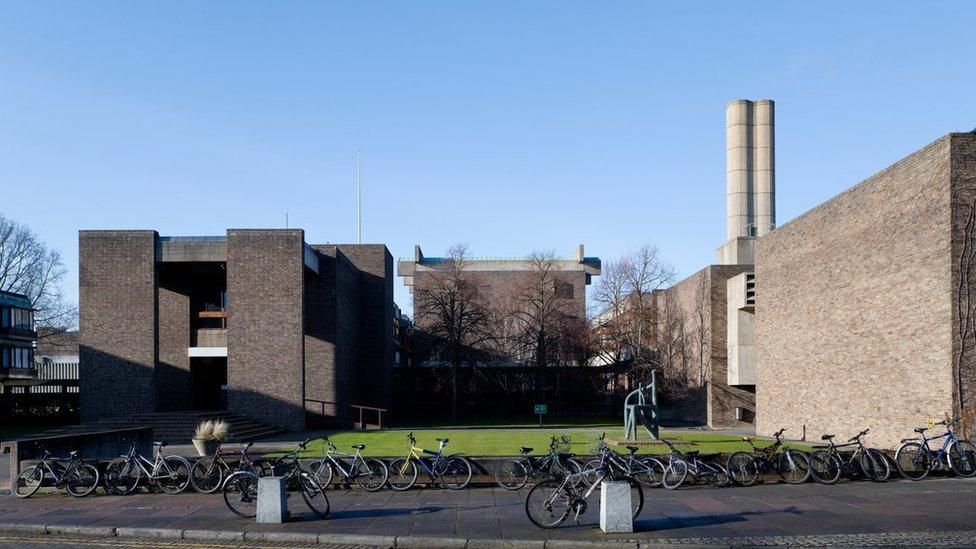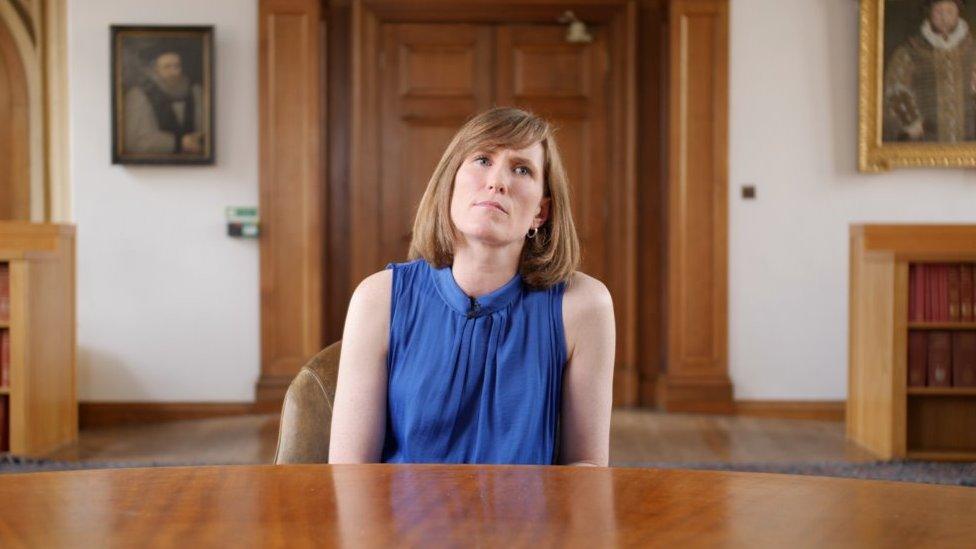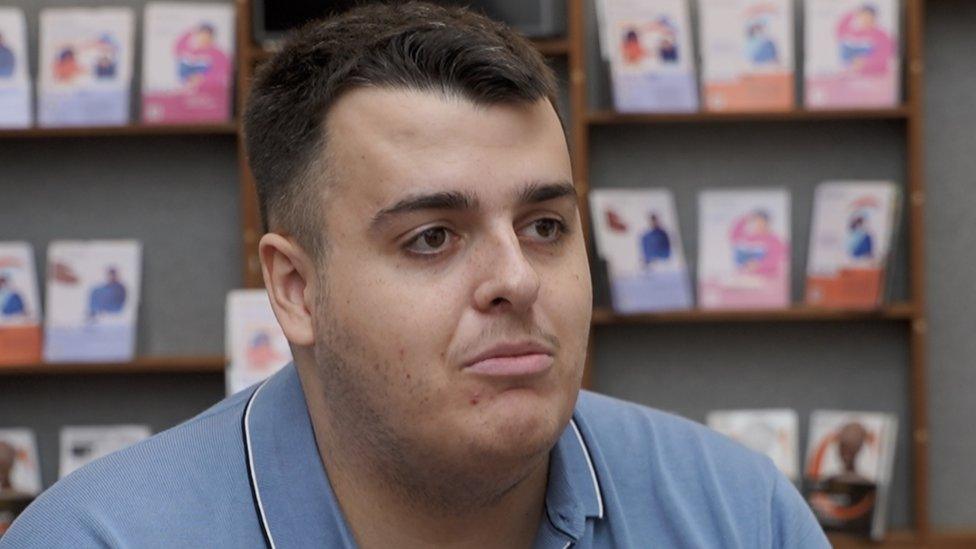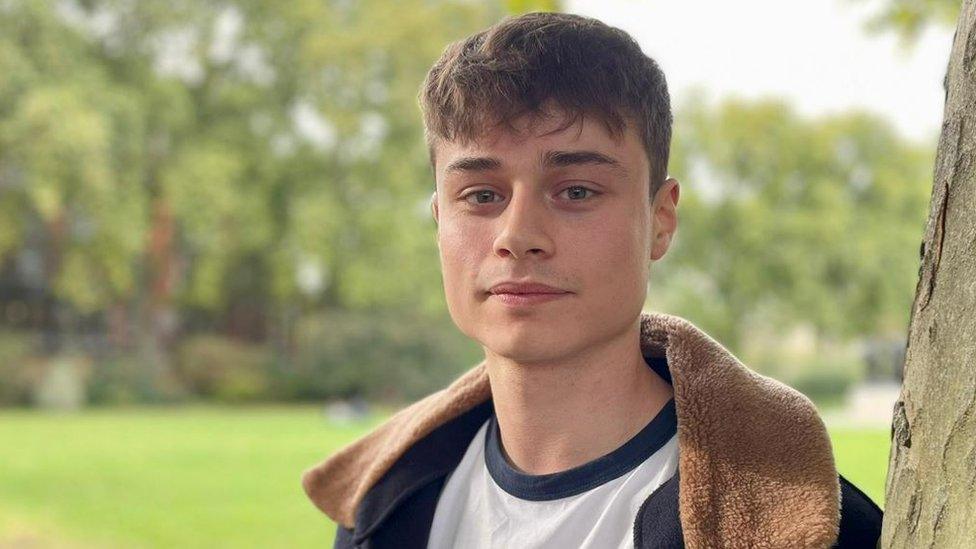Cambridge University sets up campaign to help students
- Published

A review is ongoing following the deaths of six Cambridge University students since March
Cambridge University has launched a campaign urging struggling students to access support, as the death of a sixth student this year is reviewed.
The university has now had one confirmed student suicide and five suspected others in 2022.
Natalie Acton, head of student support, said the new Reach Out campaign sought to "encourage students to come forward if they need support of any kind".
She said it had "invested significantly more resources in student support".
Reach Out was planned prior to the death of a medical student in September.
His death will be reviewed alongside those of five other students who died between March and June.

The coroner's office has been informed of the student's death at Churchill College
Ms Acton said the most recent death was "a real tragedy for that student's family and friends and colleagues here at the university and the college where they were a student".
"We take this issue extremely seriously and we are really keen to make sure that we learn any lessons that we can from a student death," she said.
The Reach Out campaign followed a review of mental health services at the university which began last year amid rising demand for services.
The BBC previously reported a draft report from October last year branded the university's mental health services as "ineffective", "untargeted" and "unsustainable".

Natalie Acton said the university had seen "unprecedented" increases in students coming to Cambridge with mental health problems
Ms Acton said there had been "unprecedented numbers of students who have mental health problems coming to the university", with about 500 new students this year stating they have a mental health condition.
"This is a campaign to encourage students to reach out, but the most important thing is that behind that lies a very comprehensive set of services now," she said.
She said the university had increased the numbers of counsellors.
Any student who refers themselves for counselling would be seen within 10 working days, she said, with a network of wellbeing advisors introduced in colleges.
"Any student who is struggling, whether it's academically, financially, emotionally, we really want them to come forward, because we have lots of support here at Cambridge, both in the colleges and at the university," she said.

If you have been affected by any of these issues, you can visit the BBC's Action Line or contact the Samaritans, external.


Kit Treadwell said it was "the first time that I've really felt like the university is listening to student concerns"
Kit Treadwell, a volunteer with the student-led mental health charity Student Minds, who was consulted on the Reach Out campaign, said: "Is this going be enough that we can say, 'no, we're done, we've fixed mental health?'. Obviously not. That's not a solution that can happen in a year and a programme.
"But what I think has been really encouraging for me as a student is when I've been consulting on this, it's the first time that I've really felt like the university is listening to student concerns and listening to issues we bring up.
"It's not enough to have support in place, you need to make it clear how you access it.
"It's not enough to just say 'it's OK to talk about their mental health'. You have to actually have some education around what that actually means in and how it affects people.
"I certainly would hope that no-one is claiming that this would solve everything immediately, but I do think it's a really good first step."

Find BBC News: East of England on Facebook, external, Instagram, external and Twitter, external. If you have a story suggestion email eastofenglandnews@bbc.co.uk, external
Related topics
- Published6 October 2022

- Published9 August 2022

- Published11 July 2022
